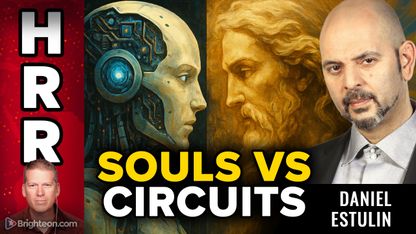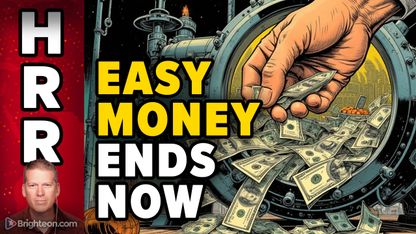
In the movie, Jaye, an investigative journalist and self-proclaimed feminist, decided to go down the rabbit hole of the Men’s Rights Activism (MRA) movement, described by Urban Dictionary as “an organization of men and their women allies who draw attention to the ways in which misandry (anti-male attitudes and actions) and gynocentrism (women-privileging) harm men.”
The film sets out to examine what MRAs really stand for, what they believe they’re fighting for, and what their attitudes really are towards women.
In spite of the movie’s huge commercial success, Netflix has refused to air it. In theaters in Canada, Australia and the U.S., feminists have come out en masse to protest viewings, and independent theaters have been under huge pressure not to show it. [Related: Discover what else they don't want you to see at Censored.news.]
CBC News recently reported that theater patrons and sponsors in Canada have threatened to stop doing business with theaters that dare to go ahead with scheduled screenings.
Gavin McInnes of Rebel Media calls this type of pressure “economic terrorism,” and makes the interesting point that many of the people who protested so vehemently against the film have never even seen it.
McInnes argues that many recent documentaries have been very biased toward one particular viewpoint, and some like An Inconvenient Truth, have been scientifically flawed and totally one-sided, yet have been accepted as fact and allowed to mold the thinking of many.
On the other hand, with The Red Pill, Cassie Jaye does “what true journalists should do,” she insists. “You set out with no agenda and you don’t end up where you thought you would.”
And judging by the content of the trailer, that is just what Jaye does. While providing the perspective of the MRAs, and highlighting some of their most pressing issues, she also speaks to prominent feminist activists and journalists to get their take on those issues.
The interviews Jaye conducts for the documentary highlight issues like men having virtually no rights when it comes to custody disputes, and the fact that if a woman should decide to abort her baby, her spouse or partner would have no say in the matter. The documentary also highlights the fact that 93 percent of workplace fatalities affect men, and that 4 out of 5 suicides are men. [Related: Men have to pay more at the pharmacy now as a "gender inequality tax".]
As one of the interviewees notes, men are suffering, but, “Society doesn’t want to hear their pain. We value female life more than we value male life.”
Dr. Warren Farrell refers to a “big hole in the area of compassion for boys and men,” and Paul Elam, president and founder of A Voice for Men, notes that the anti-men message is a subtle subtext in statements like “stop violence against women,” rather than simply, “stop all violence.”
In her video diary, Jaye looks really confused and says she’s unsure if the MRAs are simply “duping” her to convince her of their out-there theory that “men are discriminated against, and women have the advantage.”
The trailer also shows her listening to many feminist voices, including that of Katherine Spillar, executive director of the Feminist Majority Foundation, who insists that it is indisputable that women are still oppressed physically, financially and economically, and that in the political and business halls of power, men are advantaged over women.
All in all, the trailer certainly depicts a balanced, thought-provoking documentary that shows both sides of the issue. It’s hard to understand what all the furor is about. But then, perhaps Harry Crouch, president of the National Coalition for Men summed it up best when he said, “We just don’t seem to respect each other for who we are.”
Watch the documentary, and decide for yourself.
https://www.youtube.com/watch?v=HK7n_XA40V8
Sources for this article include:
Please contact us for more information.




















